
Fast fractal modeling of mammograms for microcalcifications detection
Clusters of microcalcifications in mammograms are an important early sign of breast cancer in women. Comparing with microcalcifications, the breast background tissues have high local self-similarity, which is the basic property of fractal objects. A fast fractal modeling method of mammograms for detecting the presence of microcalcifications is proposed in this paper. The conventional fractal modeling method consumes too much computation time. In the proposed method, the image is divided into shade (homogeneous) and non-shade blocks based on the dynamic range and only the non-shade blocks are
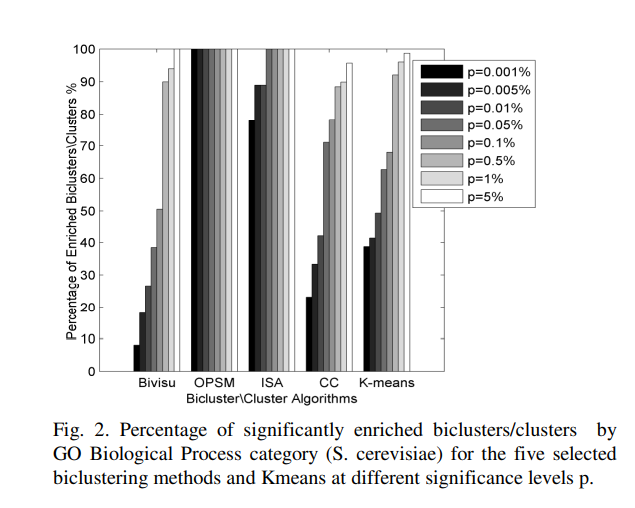
An automatic gene ontology software tool for bicluster and cluster comparisons
We propose an Automatic Gene Ontology (AGO) software as a flexible, open-source Matlab software tool that allows the user to easily compare the results of the bicluster and cluster methods. This software provides several methods to differentiate and compare the results of candidate algorithms. The results reveal that bicluster/cluster algorithms could be considered as integrated modules to recover the interesting patterns in the microarray datasets. The further application of AGO could to solve the dimensionality reduction of the gene regulatory networks. Availability: AGO and help file is
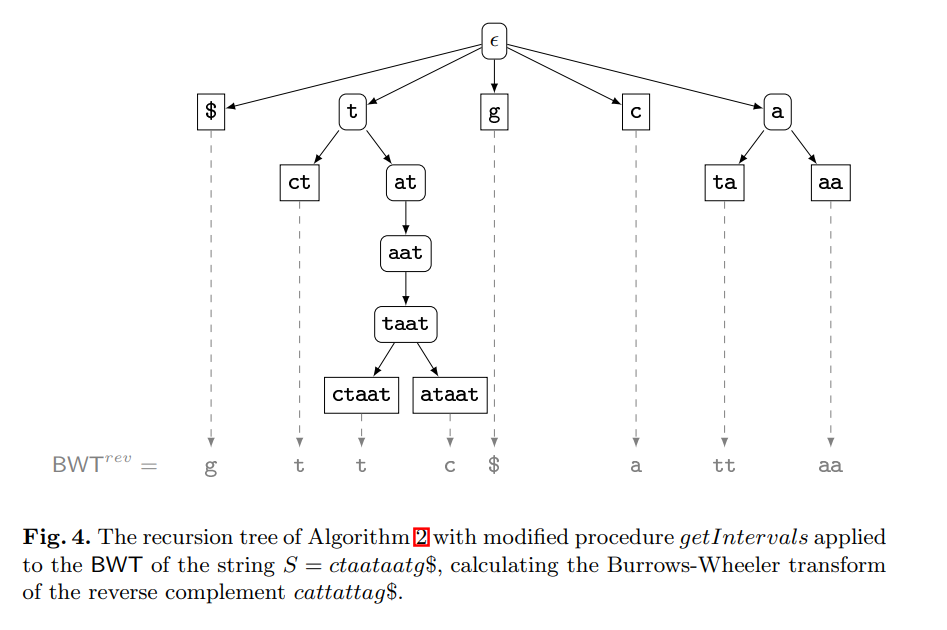
Computing the burrows-wheeler transform of a string and its reverse
The contribution of this paper is twofold. First, we provide new theoretical insights into the relationship between a string and its reverse: If the Burrows-Wheeler transform (BWT) of a string has been computed by sorting its suffixes, then the BWT and the longest common prefix array of the reverse string can be derived from it without suffix sorting. Furthermore, we show that the longest common prefix arrays of a string and its reverse are permutations of each other. Second, we provide a parallel algorithm that, given the BWT of a string, computes the BWT of its reverse much faster than all

Multi-view human action recognition system employing 2DPCA
A novel algorithm for view-invariant human action recognition is presented. This approach is based on Two-Dimensional Principal Component Analysis (2DPCA) applied directly on the Motion Energy Image (MEI) or the Motion History Image (MHI) in both the spatial domain and the transform domain. This method reduces the computational complexity by a factor of at least 66, achieving the highest recognition accuracy per camera, while maintaining minimum storage requirements, compared with the most recent reports in the field. Experimental results performed on the Weizmann action and the INIRIA IXMAS

Strain-encoded cardiac magnetic resonance during high-dose dobutamine stress testing for the estimation of cardiac outcomes: Comparison to Clinical Parameters and Conventional Wall Motion Readings
Objectives: The purpose of this study was to determine the prognostic value of strain-encoded magnetic resonance imaging (SENC) during high-dose dobutamine stress cardiac magnetic resonance imaging (DS-MRI) compared with conventional wall motion readings. Background: Detection of inducible ischemia by DS-MRI on the basis of assessing cine images is subjective and depends on the experience of the readers, which may influence not only the diagnostic classification but also the risk stratification of patients with ischemic heart disease. Methods: In all, 320 consecutive patients with suspected or
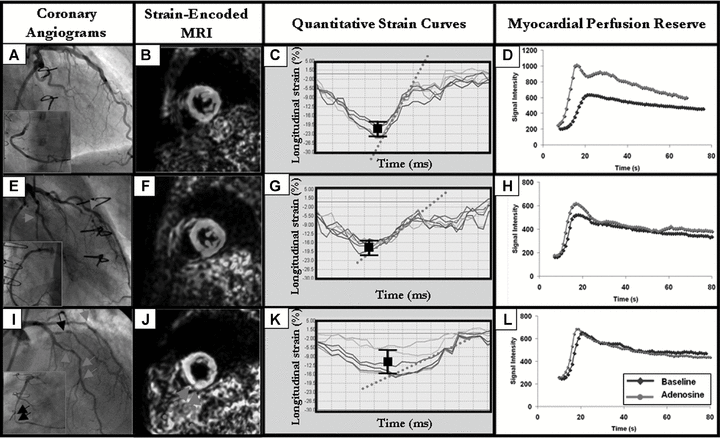
Strain-encoded cardiac magnetic resonance for the evaluation of chronic allograft vasculopathy in transplant recipients
The aim of our study was to investigate the ability of Strain-Encoded magnetic resonance imaging (MRI) to detect cardiac allograft vasculopathy (CAV) in heart transplantation (HTx)-recipients. In consecutive subjects (n = 69), who underwent cardiac catheterization, MRI was performed for quantification of myocardial strain and perfusion reserve. Based on angiographic findings subjects were classified: group A including patients with normal vessels; group B, patients with stenosis
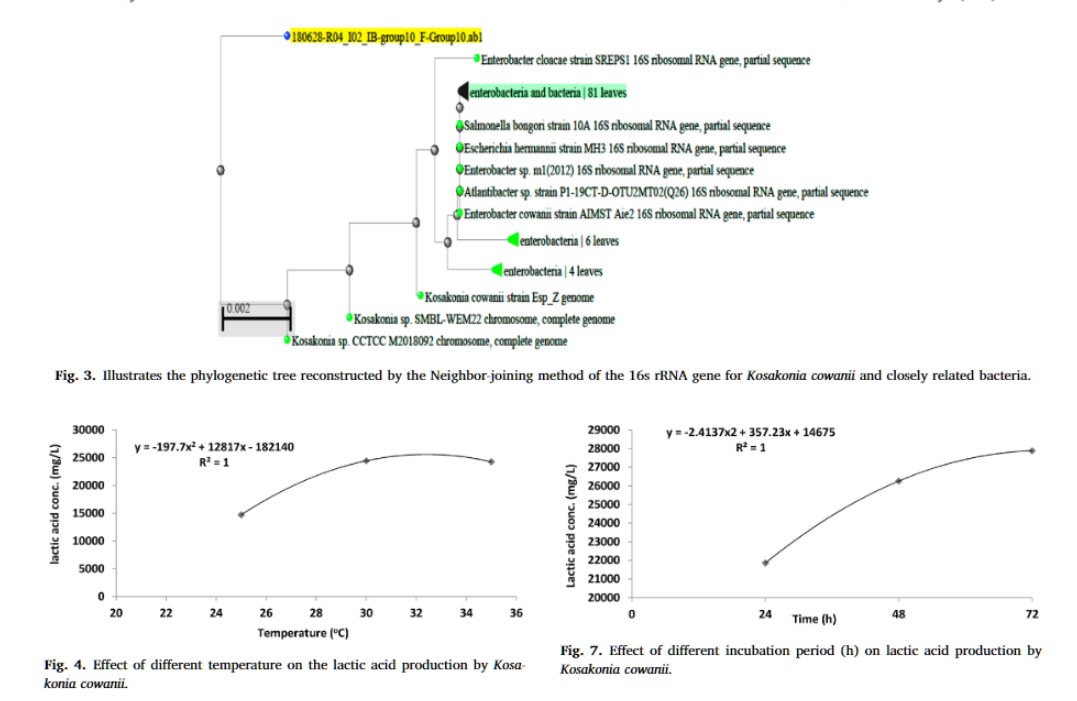
Optimization of lactic acid production from agro-industrial wastes produced by Kosakonia cowanii
Lactic acid is used for the preparation of poly-lactic acid. The objective of this research was to produce lactic acid from agro-industrial wastes as cheap, renewable substrates, and also reduce the pollution burden on the environment. Sixteen bacterial isolates were isolated from agro-industrial wastes. The chemical hydrolysis of agro-industrial wastes was achieved with hydrochloric acid, sulfuric acid, and sodium hydroxide. The highest yield of lactic acid produced was identified using 16S rRNA. The optimum conditions for lactic acid production were determined. Calcium lactate, produced from
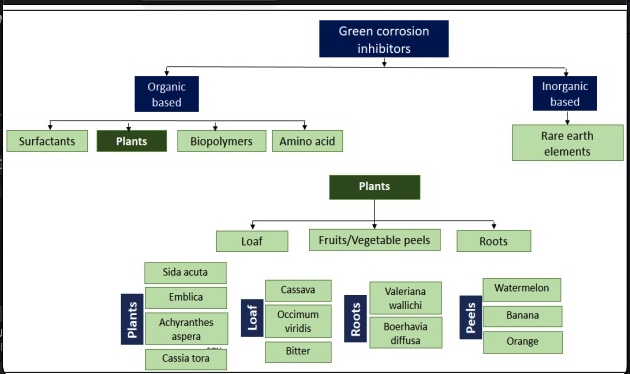
A critical review on green corrosion inhibitors based on plant extracts: Advances and potential presence in the market
Corrosion occurs in all sectors including oil pipelines, drinking water and sewerage in the majority of cases linked to corrosion of steel. Good corrosion management includes optimising corrosion control actions and minimising lifecycle corrosion costs whilst meeting environmental goals. The toxicity of commonly used synthetic inhibitors are the subject of recent legislations (REACH and PARCOM) have led to search on more eco-friendly corrosion inhibitors. Extensive research is conducted to assess the corrosion inhibition rate of diverse green inhibitors. However, it was not adequately
Assessment of cardiac mass from tagged magnetic resonance images
Purpose: Tagged and cine magnetic resonance imaging (tMRI and cMRI) techniques are used for evaluating regional and global heart function, respectively. Measuring global function parameters directly from tMRI is challenging due to the obstruction of the anatomical structure by the tagging pattern. The purpose of this study was to develop a method for processing the tMRI images to improve the myocardium-blood contrast in order to estimate global function parameters from the processed images. Materials and methods: The developed method consists of two stages: (1) removing the tagging pattern
Chiral phase structure of the sixteen meson states in the SU(3) Polyakov linear-sigma model for finite temperature and chemical potential in a strong magnetic field
In characterizing the chiral phase-structure of pseudoscalar ( ), scalar ( ), vector ( ) and axial-vector ( t) meson states and their dependence on temperature, chemical potential, and magnetic field, we utilize the SU(3) Polyakov linear-sigma model (PLSM) in the mean-field approximation. We first determine the chiral (non)strange quark condensates, and , and the corresponding deconfinement order parameters, and , in thermal and dense (finite chemical potential) medium and finite magnetic field. The temperature and the chemical potential characteristics of nonet meson states normalized to the
Pagination
- Previous page ‹‹
- Page 16
- Next page ››
